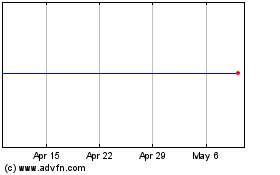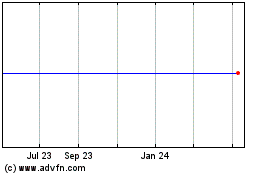- RX-3117 is effective in gemcitabine
resistant human cancer cell lines
- RX-21101, a nano-polymer targeted form
of docetaxel, demonstrates increased efficacy and reduced
toxicity
Rexahn Pharmaceuticals, Inc. (NYSE MKT: RNN) a clinical stage
biopharmaceutical company developing best-in-class therapeutics for
the treatment of cancer, today announced that it will have two
poster presentations at the 2014 American Association for Cancer
Research (AACR) Annual Meeting. The conference will take place in
San Diego, California, on April 5-9, 2014 at the San Diego
Convention Center.
The first poster entitled, “A novel small molecule cytidine
analog, RX-3117, shows potent efficacy in xenograft models, even in
tumors that are resistant to treatment with gemcitabine,” will be
presented on Sunday, April 6, 2014, during the “Experimental and
Molecular Therapeutics 6” poster session from 1:00 pm – 5:00 pm in
Hall A-E, Poster Section 34. The second poster entitled, “Synthesis
of targeted docetaxel-polymer conjugate and its anti-tumor
efficacy,” for RX-21101 will be presented on Tuesday, April 8,
2014, during the “Chemistry 8” poster session from 1:00 pm – 5:00
pm in Hall A-E, Poster Section 27.
Peter D. Suzdak, Ph.D., CEO of Rexahn, commented, “The
inhibition of tumor growth produced by RX-3117 in human cancer
cells already resistant to gemcitabine is a very important finding.
Approximately 25% of patients treated with gemcitabine become
resistant after one cycle of therapy, representing a large unmet
medical need and a significant opportunity for the clinical
development and potential commercialization of RX-3117.” Rexahn
initiated a Phase Ib clinical trial of RX-3117 in cancer patients
with solid tumors in January 2014.
RX-21101 is the first development candidate derived from the
Company’s Nano-Polymer-Drug Conjugate Systems (NPDCS) platform.
This technology targets the delivery of currently marketed
chemotherapeutic agents directly into cancerous tumors. RX-21101 is
a polymer conjugated form of docetaxel, a common chemotherapy agent
that is now generic but is marketed worldwide under the trade name
Taxotere® and had annual sales of $3.1 billion when still under
patent.
“In preclinical studies, RX-21101 has demonstrated increased
efficacy and reduced toxicity, as compared to intravenously
administered free docetaxel,” explained Dr. Suzdak. “RX-21101
contains a signaling moiety that directs the delivery of docetaxel
into tumor cells while minimizing the free circulating levels of
docetaxel. This approach reduces potential adverse events and
maximizes the anti-tumor activity of docetaxel.”
“The NPDCS platform has the potential to generate multiple
development candidates using other pharmaceutical companies’
cytotoxic anticancer compounds, transforming them into cancer cell
specific compounds with reduced side effects and increased
efficacy. This represents a clinical development approach for
Rexahn with lower risk, using FDA approved anticancer compounds.
Rexahn looks forward to utilizing the NPDCS platform to develop
multiple development candidates for either internal development or
out licensing,” Dr. Suzdak concluded.
About RX-3117
RX-3117 is a next generation nucleoside analog that is activated
(phosphorylated) by the enzyme Uridine Cytidine Kinase (UCK) and
inhibits both DNA and RNA synthesis which induces apoptotic cell
death of tumor cells. UCK is overexpressed in multiple human
tumors, but has a limited presence in normal tissues. This unique
specificity for cancer cells may lead to an improved efficacy and
safety profile in cancer patients. RX-3117 also mediates the
downregulation of DNA methyltransferase 1 (DNMT1), an enzyme
responsible for the methylation of cytosine residues on newly
synthesized DNA and also a target for anticancer therapies.
Preclinical studies have shown RX-3117 to be effective in both
inhibiting the growth of various human cancer xenograft models,
including colon, lung, renal and pancreas, as well as overcoming
chemotherapeutic drug resistance.
RX-3117 has demonstrated a broad spectrum anti-tumor activity
against 50 different human cancer cell lines and efficacy in 12
different mouse xenograft models. The efficacy in the mouse
xenograft models was superior to that of gemcitabine. In addition,
RX-3117 still retains its full anti-tumor activity in human cancer
cell lines made resistant to the anti-tumor effects of gemcitabine.
In August 2012, Rexahn reported the completion of an exploratory
Phase I clinical trial of RX-3117 in cancer patients conducted in
Europe, to investigate the oral bioavailability, safety and
tolerability of the compound. In this study, oral administration of
RX-3117 demonstrated an oral bioavailability of 56% and a plasma
half-life (T1/2) of 14 hours. In addition, RX-3117 was safe and
well tolerated in all subjects throughout the dose range
tested.
About RX-21101
RX-21101 was developed using the Nano-Polymer-Drug Conjugate
Systems (NPDCS) platform jointly discovered with the University of
Maryland at Baltimore. This technology targets the delivery of
currently marketed chemotherapeutic agents directly into cancerous
tumors. The direct delivery of chemotherapeutic drugs into the
tumors has been shown to result in increased efficacy and reduced
toxicity. The NPDCS platform combines existing chemotherapeutic
agents with a proprietary polymer carrier that contains a signaling
moiety which directs the drug into the tumor. This approach
minimizes the levels of freely circulating anti-cancer agents in
the body, which can dramatically reduce potential adverse events,
and maximizes anti-tumor activity by accumulating in the cancer
tumor. NPDCS is a broad platform that has the potential to generate
multiple therapeutic candidates going forward.
RX-21101 (HPMA-docetaxel-folate) is a polymer conjugated form of
docetaxel, a common chemotherapy agent. In preclinical studies,
RX-21101 demonstrated increased efficacy and reduced toxicity, as
compared to intravenously administered free docetaxel. Docetaxel is
now generic but is marketed worldwide under the trade name
Taxotere® for the treatment of breast, ovarian, prostate, and
non-small cell lung cancer. Despite its commercial success,
docetaxel is toxic to all dividing cells in the body and is
associated with a high incidence of adverse events including
anemia, infection, fever, neutropenia, neuropathy, asthenia, edema,
alopecia, nausea and vomiting. These adverse events are the result
of high concentrations of free docetaxel in the blood. By
minimizing the circulating concentration of free docetaxel in the
blood and maximizing the concentration in the cancer tumor,
RX-21101 may increase anti-tumor activity and a lower incidence of
adverse events.
About Rexahn Pharmaceuticals, Inc.
Rexahn Pharmaceuticals is a clinical stage biopharmaceutical
company dedicated to developing best-in-class therapeutics for the
treatment of cancer. Rexahn currently has three clinical stage
oncology candidates, Archexin®, RX-3117, and SupinoxinTM (RX-5902)
and a robust pipeline of preclinical compounds to treat multiple
types of cancer. Rexahn has also developed proprietary drug
discovery platform technologies in the areas of Nano-Polymer-Drug
Conjugate Systems (NPDCS), nano-medicines, 3D-GOLD, and TIMES. For
more information, please visit www.rexahn.com.
Safe Harbor
To the extent any statements made in this press release deal
with information that is not historical, these are forward-looking
statements under the Private Securities Litigation Reform Act of
1995. Such statements include, but are not limited to, statements
about Rexahn’s plans, objectives, expectations and intentions with
respect to future operations and products and other statements
identified by words such as “will,” “potential,” “could,” “can,”
“believe,” “intends,” “continue,” “plans,” “expects,”
“anticipates,” “estimates,” “may,” other words of similar meaning
or the use of future dates. Forward-looking statements by their
nature address matters that are, to different degrees, uncertain.
Uncertainties and risks may cause Rexahn’s actual results to be
materially different than those expressed in or implied by Rexahn’s
forward-looking statements. For Rexahn, particular uncertainties
and risks include, among others, the difficulty of developing
pharmaceutical products, obtaining regulatory and other approvals
and achieving market acceptance; the marketing success of Rexahn’s
licensees or sublicensees; the success of clinical testing; and
Rexahn’s need for and ability to obtain additional financing. More
detailed information on these and additional factors that could
affect Rexahn’s actual results are described in Rexahn’s filings
with the Securities and Exchange Commission, including its most
recent annual report on Form 10-K and subsequent quarterly reports
on Form 10-Q. All forward-looking statements in this news release
speak only as of the date of this news release. Rexahn undertakes
no obligation to update or revise any forward-looking statement,
whether as a result of new information, future events or
otherwise.
The Trout Group LLCTricia Truehart,
646-378-2953ttruehart@troutgroup.com
Rexahn Pharmaceuticals, Inc. (AMEX:RNN)
Historical Stock Chart
From Mar 2024 to Apr 2024

Rexahn Pharmaceuticals, Inc. (AMEX:RNN)
Historical Stock Chart
From Apr 2023 to Apr 2024
